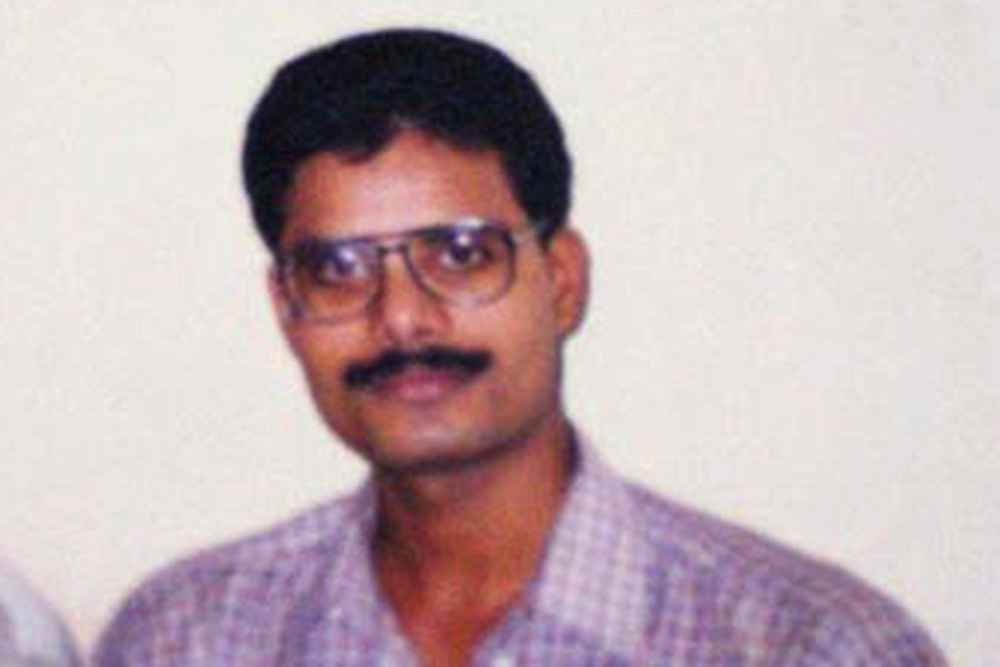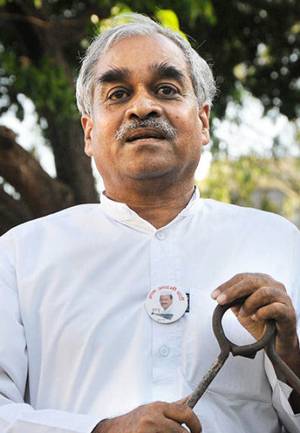Whistle-blowers is another aspect that needs to address. We have to restore the protections of whistle-blowers and also the encouragement and rewards. It shouldn’t just be that they don’t get crucified; it should be that they are again folk heroes, or celebrated for bringing critical matters to public attention, as opposed to traitors.
Ted Gups
A whistle-blower is a person who has and reports insider knowledge of illegal activities occurring inside a firm. Whistle-blowers can be employees, suppliers, contractors, clients, or any individual who becomes aware of illegal business activities. They may release information to company officials or a large governing or regulating body. In cases where high-ranking officials and executive members of management involved in fraud or other unlawful activity, the optimal choice is to report wrongdoings to a regulating agency.
Who are the famous whistleblowers in India
1. Satyendra Dubey (1973-2003) whistleblowers in India

Satyendra Dubey spotted huge financial irregularities in the handling of the GQ project while worked as a project director at the National Highways Authority of India (NHAI). He sent an anonymous letter to the PMO with a separate CV attached explaining the PM about how many contractors had “submitted forged documents to justify their technical and financial capabilities” to win bids for the contract. His letter forwarded along with the CV to the Ministry of Road, Transport and Highways. He shot dead in Gaya on Nov 27, 2002. The case is presented as that of robbery by CBI.
2. Shanmugam Manjunath (1978–2005) whistleblowers in India

A marketing manager (grade A officer) for the Indian Oil Corporation (IOC), Shanmugam sealed a corrupt petrol station in Lakhimpur Kheri for selling adulterated fuel for three months. He decided to conduct a surprise raid around 19 November 2005, when the pump started operating again a month later. Manjunath got shot dead in the town of Gola Gokarannath in Lakhimpur Kheri, during his inspection.
3. Lalit Mehta (1972–2008) whistleblowers in India

A civil engineer by qualification, Lalit Mehta was an Indian RTI activist, who was killed brutally near Palamau on May 14, 2008. He blew the lid off widespread double-dealing in NREGS in Palamu and became a threat to the contractor lobby and corrupt government officials. The Social audit of NREGA he undertook under economist Jean Dreze’s supervision was his final nail in the coffin of the contractor lobby. But he was killed just a day before that.
4. Vijay Pandhare, whistleblowers in India

Pandhare, the Chief Engineer, was a bureaucrat belonging to the Irrigation Department in the Indian state of Maharashtra. He blew the whistle on the Maharashtra Irrigation Scam of 2012 that led to the resignation of Maharashtra Deputy Chief Minister Ajit Pawar.
Some of the other famous Indian whistle-blowers
- Vijay Bahadur Singh
- Rinku Singh Rahi
- Anand Rai
- Hemanth Goswami
- Vishwa Bandhu Gupta
“The reality is that all organisations hate having their inner workings exposed, the more so if it incurs collective odium and risks jobs. The wagons gather into a circle to defend a wounded superior.”
Fuad Alakbarov, Exodus
What is the latest whistle blow crisis in Infosys?
Crisis number 1
On September 20 2019, a letter from a group of anonymous employees sent to the Infosys board. They have pinpoint to multiple instances of unethical practices done by CEO Salil Parekh and CFO Nilanjan Roy, especially about massive deals they won.
Full text of the whistleblower’s letter:
September 20, 2019
Board of Directors,
Infosys Ltd,
Bangalore.
Respected Sir / Madam,
Disturbing unethical practices
We have high respect for all of you and bring to your notice the unethical practices of CEO in recent quarters. Same measures are taken up in current quarter also to boost short term revenue and profits. We are Infosys employees and we have emails and voice recordings on these matters. We hope the board will conduct immediate investigation and take action.
In last quarter, we were asked not to fully recognise costs like visa costs to improve profits. We have voice recordings of these conversations. When auditor opposed, the issue was postponed. This quarter, thee is a lot of pressure to not recognise reversals of $50 million of upfront payment in FDR contact, which is against accounting practice. As this will reduce profits for the quarter and negative for stock price, they are putting pressure not to take the charge. Critical information is hidden from the auditors and board. In large contracts like Verizon, Intel and JVs in Japan, ABN Amro acqusition, revenue recognition matters are forced which are not as per accounting standards. We have emails and voice recordings and we will share when investors ask us. We are asked not to share large deal information with auditors.
Large deals approvals have irregularities. CEO is bypassing reviews and approvals and instructing sales not to send mails for approval. He directs them to make wrong assumptions to show margins. CFO is compliant and he prevents us from showing in board presentations large deal issues. CEO told us,” no one in the board understands these things. They are happy as long as share price is up. These two Madrasis (Sundaram and Prahalad) and Divya (Kiran) make silly points. You just nod and ignore them. ” We have voice recordings of this. Several billion dollars deals of last few quarters have nil margin. Please ask auditors to check deal proposals, undisclosed upfront commitments made and revenue recognition. All information is not shared with auditors.
CEO spends two and half days in a week in Ecity and rest in Mumbai. All his travel expenses are paid by the company, for these weekly personal trips. He is green card holder and avoids deduction of taxes during his US travel which is non compliance. Please check and details will be provided.
In board meetings, we are told not to present data on large deals and important financial measures as it will get board attention. CEO and CFO are asking us to show more profits in treasury by taking up risks and make changes to policies. This will provide short term profits. They ask us not to make key disclosures in 20 F and annual report and to share only good and incomplete information with investors and analysts. This is regulatory issue. We have mails and voice records and will share during investigation Whoever disagrees is sidelined and many of them leave. In large deals finance team, important employees are left due to pressure to make deals look good.
We know you will take action and we await to provide details and evidence to investigators.
Ethical Employees
The claims are:
1. Most of the large deals have negligible margins, and the company bypassed appropriate review and approval processes on these deals
2. There is Information related to these deals as it suppressed from auditors and board members
3. Revenue and cost recognition compared to some of the huge deals have not adhered to accounting standards to help improve near-term profitability.
4. CEO & CFO put pressure on treasury to boost other income by taking higher risks to help improve near-term profitability.
What does Infosys say about the allegation by whistleblowers:-
Infosys has acknowledged receiving the complaint. It said the matter has placed before D Sundaram, the audit committee of the board. The panel also comprises independent members Roopa Kudva and Punita Kumar Sinha.
Crisis 2
The IT major received a second undated whistle-blower letter accusing Salil Parekh, the Chief Executive Officer of committing misdeeds. It leads to the limited ending of shares of Infosys nearly 2% lower on Wednesday, a day after the company Sentiment for the stock was hit. Further, the stock exchanges sought clarification from the company on the fresh complaint.
We have a way of dealing with information that has a personal – personally identifying information in it. But there are legitimate secrets – you know, your records with your doctor; that’s a legitimate secret. But we deal with whistle-blowers that are coming forward that are well-motivated.
Julian Assange
Are whistle-blowers good, bad or ugly?
Most of the whistle-blowers are among the most dedicated employees. They generally stick to loyalty, dedication and commitment to the higher mission their organisation serves. When they see those higher values get ignored or wilfully undermined, they become upset. But express their grievances in front of the public; instead, they want them to get fixed. The concerns could include discriminatory practices, fraudulent activity or safeguarding issues.
Many companies now educate their employees on whistle-blowers to build a culture where reporting misconduct is acceptable. Some organisation offer bonuses to employees to bring forth issues that could indicate more significant problems. It is because the report points out integral problems, which let the firm more accurate on monitoring the daily reports. It leads the company to have fewer material lawsuits in the future.
The humanities teach us the value, even for business, of criticism and dissent. When there’s a culture of going along to get along, where whistleblowers are discouraged, bad things happen, and businesses implode.
― Martha C. Nussbaum





